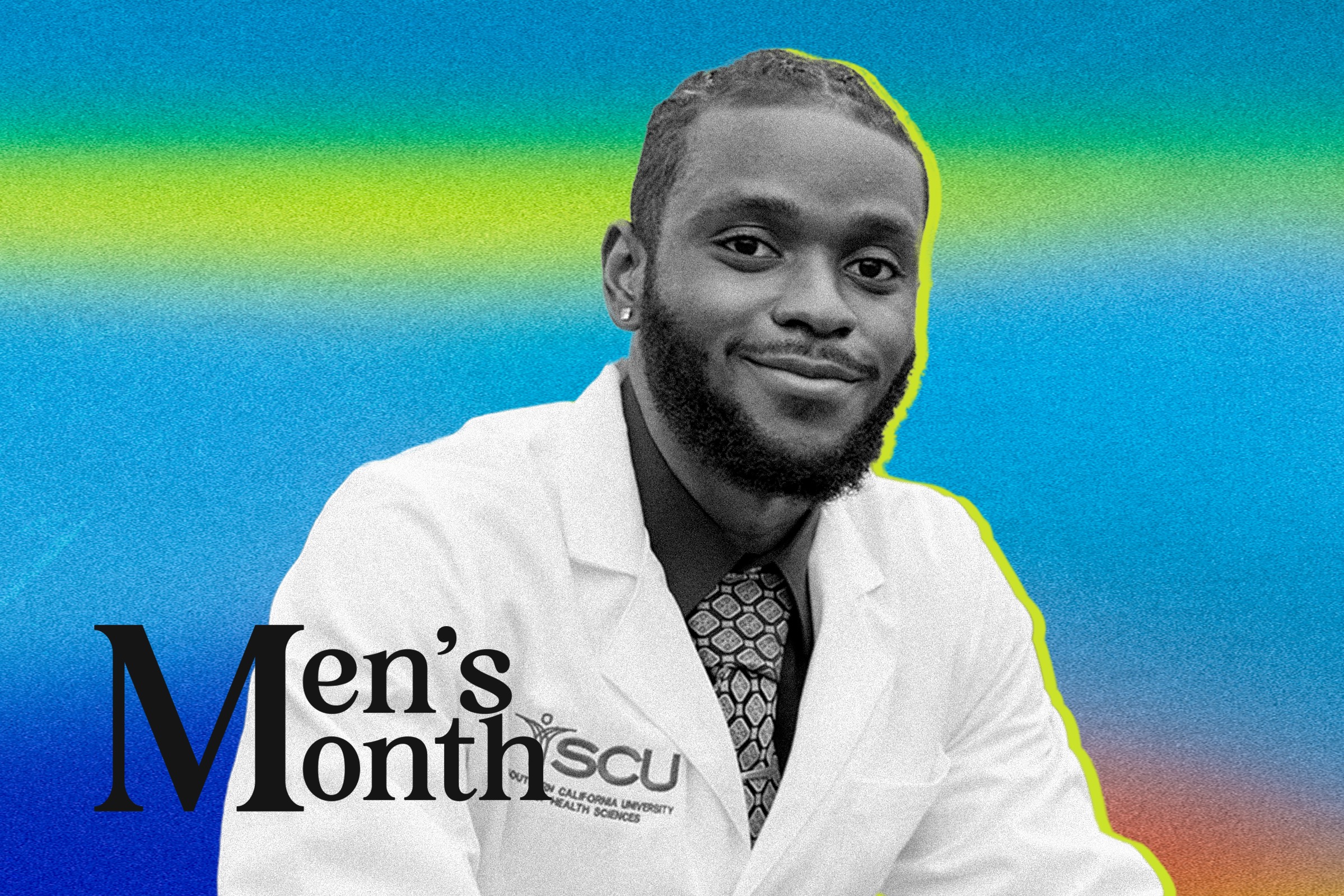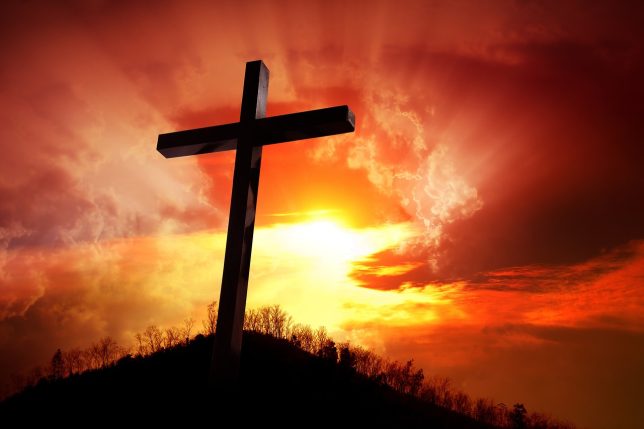The Defining Series was launched to amplify the experiences and testimonies of members of our community. For the month of November, UN-ASSOCIATED is dedicating its content, including The Defining Series, to the men of our community in an effort to redefine manhood as defined by the Word of God and cultivate a space and platform for men of God seeking support, community and the opportunity to be transparent and wholly themselves. For this edition of The Defining Series, men of God from our community shared their testimonies of their relationships to masculinity and how their faith has strengthened their ability to stand in the men God has called them to be.
Editor-in-Chief Danielle Clayton sat down with San Diego native Tomi Osinfolarin to reflect on his relationship to manhood and how he has learned to submit to God’s will and way.
Danielle Clayton: My name is Danielle Clayton and this is The Defining Series: Men’s Edition and you are?
Tomi Osin: My name is Oluwatomisin Osinfolarin, but everyone calls me Tomi.
D: And you are from?
T: San Diego, California.
D: This month is about redefining manhood and assessing manhood through the lens of the Word of God and not the world. With that in mind, my first question is how do you personally define manhood and how has that definition evolved over time?
T: Whenever I think of masculinity, I think of being the head of the household. I think of how God created Adam and gave him dominion over all the creatures of the Earth. I think about how God removed Adam’s rib to create Eve and how Adam was given authority over her and how the woman was created to help support Adam as the head. So, that’s how I see masculinity – being a provider, being the head and being the one to orchestrate and facilitate various matters of life.
D: Is that a definition you have always had or has that evolved over time?
T: That is something that has been instilled in me from seeing my dad and growing up in the church and learning the stories of the Bible and portrayal of man. I’ve always carried that with me and of course, there are levels to it, so my understanding of what it means to be a man has expanded over time, but my definition of masculinity is something I’ve grown up with.
D: Can you share any significant experiences or role models that have shaped your understanding of masculinity and how to model it for yourself?
T: I would say my Uncle Good News because he’s someone I have always looked up to and he’s always talked about being a provider and goes above. He has always gone above and beyond to take care of his family and submitted himself under God to do so, which is one of the most important parts. As a provider, we always want to provide financially and put a roof over our family’s head and he shared with me that there was a point in time that he didn’t feel comfortable financially and during the time, the only place he wanted to be was in church. He talked about how he submitted himself under God and how miracles continued to flow his way and he was able to provide for his family, but those miracles could not have happened if he had not submitted himself under God instead of going out on his own and trying to make things happen. Men tend to be very prideful. We don’t like to ask for help. We want to be in control. There’s a huge control factor, but I was able to see him submit which is not an easy thing to do and to a degree, it is frowned upon. Independence is highly sought in our society and everyone wants to be self-made, so whenever I look at him and think of him and his ability to provide, it is directly connected to his relationship with God.
D: I know you were speaking in general about it being hard for men to ask for help, but is it hard for you to ask for help?
T: I wouldn’t say I have a trouble asking for help, but I will say it’s probably one of the last things I will do. I don’t know if that makes sense.
D: I think I understand. You would rather exhaust all of your resources before you need to ask for help?
T: Yes, I would rather do everything that I can before putting something on someone else’s plate. Granted, there’s people in my life that who it would be nothing for them to help me, but I would rather it be the last option.
D: Do you find it difficult to be vulnerable as a man?
T: I want to say no. I’m completely okay with being vulnerable. I don’t necessarily like to do so, but for me, no matter what, it’s uncomfortable for me. I am trying to build something to the glory of God and so I am able to provide for my future and current family, but I’m in a sensitive period of time. More recently, I’ve been getting questions about how work is and how the professional career is going and I am just starting off, so it’s not a topic I like to talk about. It’s a sensitive topic for me because I’m someone who, given my definition of manhood is providing, feels like I have to have it together, which is an expectation I place upon myself. I feel like I shouldn’t have these issues even though I know there are going to be bumps in the road and it’s always a work in progress. At the same time, I feel like I should have it together and I should be established. It shouldn’t be this hard, so there’s two sides of the same coin where on the one hand, I believe in one thing, but on the other hand, the other is also present.
D: You mentioned vulnerability through the vein of work. Is talking about your feelings also somewhat of a taboo for you?
T: I don’t necessarily have an issue sharing my feelings, it is just a matter of if that emotion comes up or is present. I am a very stoic person.
D: Do you think that’s cultural?
T: I want to say that to a degree, there is some cultural involvement. To what degree? I really can’t say. There’s people in my life and in the culture that have an issue conveying emotions and when I think about my own father, he’s a lot more open than I am, so I almost want to say the vast majority of it is me. Even comparatively speaking, to my peers, I am more reserved than them.
D: Have you ever struggled in your identity as a man and if so, what experiences led to it?
T: I would say I struggle when it comes to leading and being authoritative. My personality is very nonchalant and go with the flow and when it comes to being a man, which like I said is being head of the household, it sometimes feels like I am too nonchalant and passive. It very much goes against my ideology of what it means it be a man, so growing up, I’ve always kind of felt insecure and at times, I even thought it was something I would grow into, but to this day, I’m very passive. It bothered me for a while until I spoke to one of my aunts and granted, this was more of a conversation about how to orchestrate myself as a man in a relationship and working towards being head of the household, but she said that her husband is very much like myself. However, he leads by example, does the things he needs to do and submits himself under God, then lets God do the rest and that’s how He leads. So after that conversation and going back to my Uncle Good News and that same theme of submitting yourself under God, having two experiences with two individuals I hold in high regard is when I started to become more comfortable with myself and my own masculinity. I don’t need to check off the boxes society says I do in order to deem me a man. Let me submit myself under God, submit myself to God and let God guide me in the way He wants me to move.
D: What do you think could be improved around the conversation about men within society and the world?
T: The biggest one that comes to mind is vulnerability and mental health as well. I would also say the expectation and perception of manhood from women. We’re very stuck in our own heads as it relates to what manhood is, but having women bring their thoughts and expectations to the forefront would help in our development because we might be aspiring to do X,Y and Z. However, when it comes to establishing a home or family, for example, that requires building a foundation on with your definition of manhood, which may not even be fruitful for your own home based on your spouse’s perception. So, it is important to incorporate that into the mix to have a more cohesive and congruent ideology of what manhood is and of course, that differs from person to person.
D: Are there any scriptures that have been a comfort to you as you navigate your manhood and identity in Christ?
T: It’s a little cliché, but Isaiah 40:31, which is “But those who hope in the Lord will renew their strength. They will soar on wings like eagles; they will run and not grow weary, they will walk and not be faint.” It’s my favorite Bible verse and applicable to virtually anything. I am reminded to wait on the Lord to allow me to continue to develop me as a man, to guide me, to help me define myself as a man, and to equip me with all the tools I need to navigate life. As I continue to run and continue to navigate this space and through life, I will not grow weary in the process of doing so. This verse has carried me through a variety of situations, but even when it comes to manhood, it reminds me to continue to wait on the Lord and He will pave the way for me. Of course, it’s a continual process , but as I continue to move through life, God will continue to add layers and layers and I’ll be able to operate within the confines of manhood as ordained by Him more and more.
D: What would present Tomi say to your younger self?
T: I would say don’t be afraid to be you. I feel like I didn’t share a lot of myself with the world so to speak. I tend to keep a lot of things hidden and I should allow the things that make me me like my spirituality, my creativity and my joy for various things and aspects of life come to the forefront. I would definitely go back and let people see more of me and how I identity myself. Be comfortable being you and if it takes you out of certain spaces, to God’s glory.
D: Do you have any encouragement for the men of God in our community who are ascribing to be men of God or struggling in their manhood or men of God in general?
T: I would say submit yourself to God and allow Him to continue to guide your path, to continue to guide your way. Devote yourself to His work. Continue to pray. Continue to read your Bible. Continue to learn the stories of men of the past. Also, look closer at the life of Jesus and how He moved, how He walked, how He talked, how He led. Those are all very powerful tools as you continue to define yourself as a man and don’t be overwhelmed by the expectations of society. It is very easy to allow individuals and aspects of the world to overwhelm and overtake your mind and what it means to be a man, but what God has for you and how He will establish you as a man is of the utmost importance and what you should be focused on. Be patient. It’s a process. I was uncomfortable for a long period of time when I should have just put my faith in God and understand my manhood and how He wants me to move is defined in Him. Lastly, don’t be afraid to share that discomfort you’re feeling. Don’t be afraid to share and gain insight from those around you, from those that hold you in high regard and are spiritually grounded to continue to help develop yourself.







